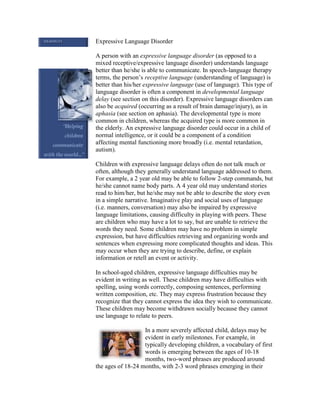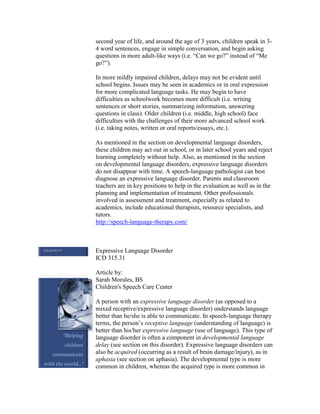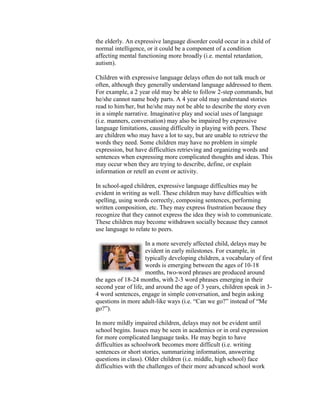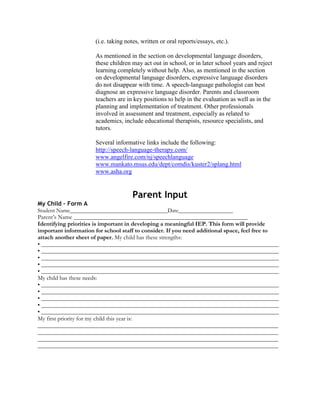An expressive language disorder is a type of language disorder where an individual understands language better than they are able to communicate or express themselves verbally. Children with this disorder may understand instructions or stories but have difficulty describing events, naming objects, or having conversations. Delays can range from mild issues with complex expression to more severe delays seen in early language milestones. Treatment involves speech therapy to improve expressive language skills.




